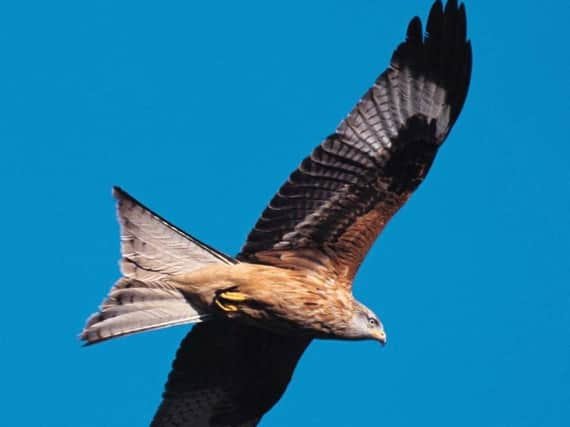Red kite poisoned near Knaresborough dubbed 'unacceptable' crime


The dead kite was found by a member of the public just outside the village of Ferrensby between Knaresborough and Boroughbridge in December last year.
Now, post mortem and toxicology tests revealed that the bird was killed by a pesticide, prompting a warning from North Yorkshire Police about the 'cruel, illegal and dangerous' practice of lacing animal carcasses with poison to kill other wildlife.
Advertisement
Hide AdAdvertisement
Hide AdSergeant Kevin Kelly, of NYP's Rural Taskforce, said: “North Yorkshire’s wonderful countryside is host to many specially-protected birds of prey, including red kites.
"It is completely unacceptable that people think they can ignore the law and subject these birds to poisonings and other forms of persecution without consequence.
“Like other forms of rural crime, raptor persecution is not a problem that the police can tackle alone.
"If everyone keeps their eyes open for illegal traps and poisoned bait, it will be a massive boost to our surveillance operation."
Advertisement
Hide AdAdvertisement
Hide AdTest results showed the bird had significant amounts of chloralose, a pesticide, in its kidney - and it was concluded that this was the cause of death.
It is believed the bird ingested it when feeding on bait laced with the poison but the post mortem could not identify the nature of the kite’s last meal.
The bird would have succumbed within a few minutes of consuming the poison, however it could have carried the bait for some distance before eating it.
The location where the kite picked up the poison is therefore not known.
Advertisement
Hide AdAdvertisement
Hide AdNYP's ongoing operation, Operation Owl, is an initiative which works with the RSPB, RSPCA, North York Moors and Yorkshire Dales National Parks, the Nidderdale Moorland Group, and others, to reduce the number of illegal attacks on birds of prey.
As part of the operation, police carry out surveillance checks on known raptor persecution hot-spots at random times to disrupt offender activity.
But officers are also calling on the public to be the ‘eyes and ears’ of the police when out in the countryside.
Anyone with any information about this incident is asked to call North Yorkshire Police on 101, choose option 1 and be ready to quote reference 12170217776.
Alternatively email [email protected]
If you wish to remain anonymous, call the RSPB’s confidential Raptor Crime Hotline for free on 0300 999 0101.